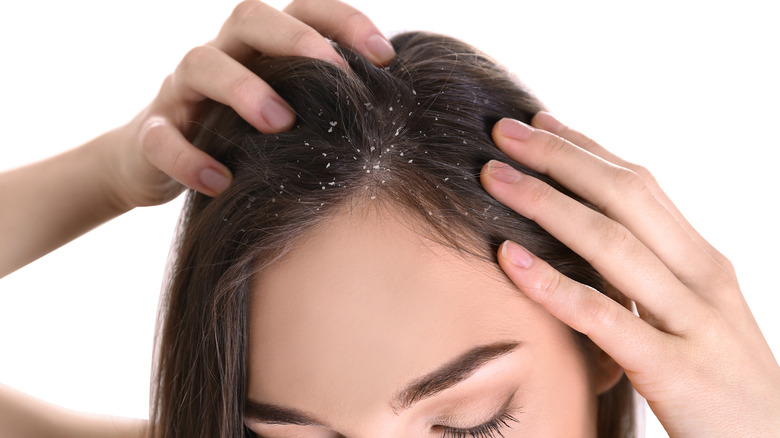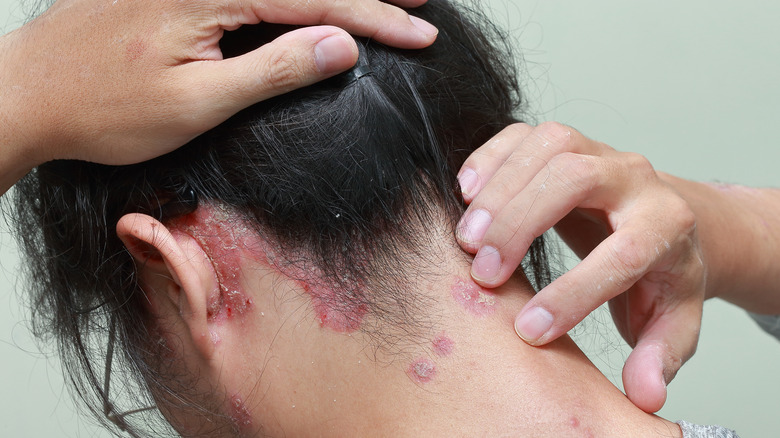How To Tell If You Have Scalp Psoriasis Vs. Dandruff
If your scalp itches and you have annoying flakes, chances are you think you have dandruff. Perhaps you've tried all sorts of dandruff shampoos and conditioners to help get rid of the situation, and maybe you've even experienced varying degrees of success. However, if nothing seems to work on those pesky flakes, you could have scalp psoriasis. According to Web MD, only a doctor can diagnose you correctly, but getting the correct diagnosis is the only way to treat the issue effectively.
If your itchy scalp is due to dandruff, there are several reasons why you might experience flakes. A fungus called Malassezia, seborrheic dermatitis, contact dermatitis, a weakened immune system, and infrequent shampooing are all potential causes of dandruff (via Mayo Clinic). However, if you've ruled out these things, and dandruff shampoo or changing your habits isn't helping, then it's possible you don't have dandruff.
Read on to find out more about scalp psoriasis.
Here's how doctors diagnose and treat scalp psoriasis
If your itchiness and flakes are more than dandruff, and nothing is working to clear them up, then chances are you've gone to the doctor. If you haven't, you should make an appointment with your primary care physician or a dermatologist. Once you see the doctor, she might send a small piece of your skin to be examined under a microscope (via Web MD). Unfortunately, the situation is chronic, meaning it won't come and go like dandruff, but you may experience times of flares, according to Mayo Clinic. An autoimmune disease, scalp psoriasis may spread beyond your hair, to your neck, and behind your ears, causing red, scaly irritation.
If you're diagnosed with scalp psoriasis, dandruff shampoo probably won't work. Instead, you should treat it with shampoos containing coal tar and salicylic acid. Additional treatments include topical creams, ointments, and foams, which can slow the buildup and ease the irritation caused by the red scaly patches. If you only have a small area, then a steroid cream might work on the patch. Finally, an ultraviolet or UV light treatment could help ease irritation.
The good news is that even if your itchy scalp isn't dandruff, your doctor can offer several treatment options.

